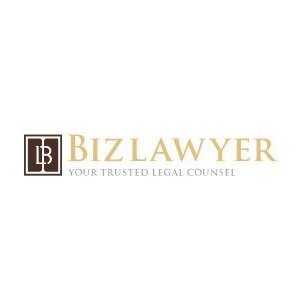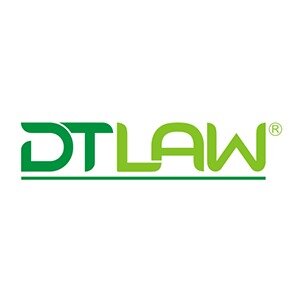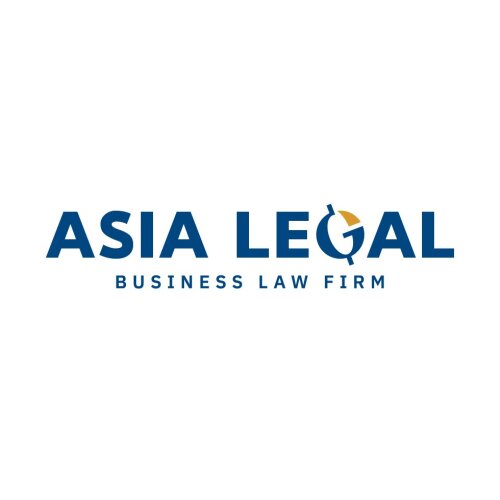Best Conveyancing Lawyers in Hanoi
Share your needs with us, get contacted by law firms.
Free. Takes 2 min.
Free Guide to Hiring a Real Estate Lawyer
List of the best lawyers in Hanoi, Vietnam
About Conveyancing Law in Hanoi, Vietnam
Conveyancing refers to the legal process of transferring property ownership from one person or entity to another. In Hanoi, Vietnam, this process is governed by Vietnam's Land Law and related regulations that ensure all aspects of the property transaction, such as verification of ownership, registration, and contract execution, comply with the law. The conveyancing process often involves complex legal, administrative, and financial steps, especially for non-Vietnamese nationals or those unfamiliar with local legal procedures.
Why You May Need a Lawyer
Legal assistance is highly recommended when dealing with conveyancing in Hanoi due to the intricacies of local property laws and administrative procedures. Common situations where a lawyer's help is crucial include:
- Purchasing or selling a property in Hanoi
- Transferring ownership rights of land or houses between family members
- Handling property inheritance or gifting matters
- Buying property as a foreign investor or non-resident
- Resolving disputes related to property boundaries, titles, or encumbrances
- Reviewing and drafting sale contracts, agreements, and transaction documents
- Navigating administrative procedures and paperwork required by local authorities
An experienced lawyer helps ensure due diligence is done, reduces the risk of costly mistakes or legal disputes, and provides peace of mind during the conveyancing process.
Local Laws Overview
Conveyancing in Hanoi operates under several core Vietnamese statutes and local government regulations:
- Land Law 2013: Sets the fundamental rules for land ownership, land-use rights, and procedures for land transactions in Vietnam.
- Civil Code: Governs contracts and general property transactions.
- Law on Real Estate Business: Regulates the trading of real estate for organizations and individuals.
- Decrees and Circulars: Issued by central and Hanoi-specific authorities, prescribing the detailed implementation of property registration, tax obligations, and administrative procedures.
- Ownership Restrictions: Foreigners and foreign-invested enterprises face specific limitations on land and property ownership in Vietnam, primarily granted as land-use rights for a specified period.
To complete a property transfer in Hanoi, legal requirements include confirming the validity of the property title, ensuring there are no encumbrances, obtaining required approvals, paying relevant taxes and fees, and registering the change of ownership with the local Land Registration Office.
Frequently Asked Questions
What is conveyancing in Hanoi?
Conveyancing in Hanoi means the legal process of transferring the ownership of real estate or land from one person or legal entity to another, involving verification, documentation, tax payments, and registration.
Can foreigners buy property in Hanoi?
Yes, foreigners can buy certain types of property in Hanoi, subject to Vietnamese law. Foreigners are generally granted renewable 50-year leases rather than full land ownership and are limited to specific property types such as apartments in approved developments.
What documents are needed for property transfer?
Common documents include: certificate of land-use rights (also known as the Red Book), identification papers of parties, sale agreement, tax clearance, and approval from local authorities as required.
How long does the conveyancing process take?
Typically, a straightforward transaction can be completed in two to four weeks, but it may take longer if there are complications with the documentation, property records, or if additional approvals are required.
What taxes and fees apply to property transactions?
Sellers usually pay personal income tax on capital gains (commonly 2 percent of the transfer price). Buyers must pay registration fees, notarial fees, and land-use transfer fees.
Is a lawyer required for conveyancing in Hanoi?
While not legally mandatory, hiring a lawyer is highly recommended to protect your interests and ensure compliance with all requirements, especially if you are not fluent in Vietnamese or are unfamiliar with local procedures.
Who verifies the property title?
Title verification is usually handled by the local Land Registration Office. It is advisable to have your lawyer or a reputable notary public carry out an independent due diligence check before the transaction.
Can a property be sold with an existing mortgage?
A property encumbered with a mortgage can be sold only if the mortgage is settled and released before or during the transaction. The release must be documented and registered with the authorities.
What are the risks of not using a lawyer?
Risks include unclear property titles, hidden debts or encumbrances, non-compliance with regulations, potential disputes, and invalid contracts, all of which can result in financial loss or legal complications.
Where is property ownership registered in Hanoi?
Ownership and land-use rights are registered at the local Land Registration Office (part of the Department of Natural Resources and Environment) after the transaction is completed and all fees and taxes are paid.
Additional Resources
If you need further information or assistance, consider contacting:
- Hanoi Department of Natural Resources and Environment: Handles land administration, title registration, and inquiries about land use rights
- Vietnam Ministry of Natural Resources and Environment: Provides guidance on national land policies and regulations
- Vietnam Bar Federation: Offers referrals for qualified lawyers experienced in property and real estate law
- Local notary offices: Responsible for notarizing property transfer documents
- Reputable real estate agencies: Can provide insights into market practices and necessary legal steps
Next Steps
If you are considering buying or selling property, inheriting, or transferring land in Hanoi, follow these steps:
- Gather all available documents related to the property and your identity
- Consult a qualified lawyer specialized in conveyancing to review your documents and advise on your legal position
- Request your lawyer's help to perform thorough due diligence on the property, including title verification and encumbrance checks
- Work with your lawyer to draft or review all contracts and agreements before signing
- Arrange for notarization of documents at an approved local notary office
- Comply with all required tax payments and registration procedures with relevant authorities
- Keep copies of all finalized, stamped, and registered documents for your records
Seeking early legal advice and professional assistance will help you complete your conveyancing transaction smoothly and securely in Hanoi, Vietnam.
Lawzana helps you find the best lawyers and law firms in Hanoi through a curated and pre-screened list of qualified legal professionals. Our platform offers rankings and detailed profiles of attorneys and law firms, allowing you to compare based on practice areas, including Conveyancing, experience, and client feedback.
Each profile includes a description of the firm's areas of practice, client reviews, team members and partners, year of establishment, spoken languages, office locations, contact information, social media presence, and any published articles or resources. Most firms on our platform speak English and are experienced in both local and international legal matters.
Get a quote from top-rated law firms in Hanoi, Vietnam — quickly, securely, and without unnecessary hassle.
Disclaimer:
The information provided on this page is for general informational purposes only and does not constitute legal advice. While we strive to ensure the accuracy and relevance of the content, legal information may change over time, and interpretations of the law can vary. You should always consult with a qualified legal professional for advice specific to your situation.
We disclaim all liability for actions taken or not taken based on the content of this page. If you believe any information is incorrect or outdated, please contact us, and we will review and update it where appropriate.

















